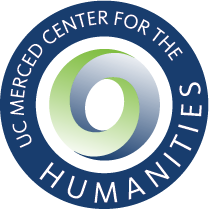
Dr. Joseph Morales trained in theory of religion at University of Chicago and critical race and ethnic studies at University of California, Berkeley. He recently held a Chancellor’s ADVANCE Postdoctoral Fellowship in the Department of English at University of California, Irvine, where he worked on the politics of “ethnic” archives and databases; and in a second project, the intersection of Latina/o life writing with post-9/11 conflations of race and religion. He is currently at work on a book project that explores the connection between religion and cross racial relations in Mexican American literature. He is also a founding faculty member of the newly formed Long Beach Ethnic Studies Program, a collaboration between Long Beach Unified School District and the ethnic studies departments of California State University, Long Beach.
One of my areas of expertise is race and technology. In one of my current projects, I develop a history of the Chicano Database, a specialized bibliographic resource for Chicano/Latino studies. This project attempts to bridge critical race studies and digital humanities. For example, I argue that the Chicano Database presupposes a new language for data collection and management that runs counter to conventional archival projects. In its creation, the Chicano Database not only reimagined the organization of data for research purposes but also challenged the cultural and historical imaginary implicit in its rival mainstream libraries; namely, UC Berkeley’s Bancroft Library. Whereas 19th century US imperialism played a central role in the foundational principles of the Bancroft Library, student activism geared toward social justice – and in particular, UC Berkeley’s 1969 Third World Strike – played a major role in the creation and production of the Chicano Database. As an extension of social justice aspirations, the Chicano Database stands as a challenge to ongoing attempts to keep data about Chicanos and Latinos “in line” vis-à-vis de-politicizing discourses, including neo-conservatism, colorblindness, and neoliberalism, among others.













